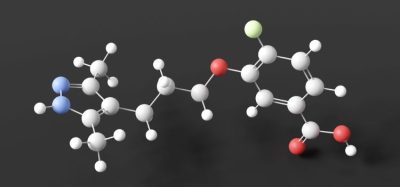Oral drug reduces treatment-resistant migraine frequency
Posted: 20 April 2023 | Catherine Eckford (European Pharmaceutical Review) | No comments yet
Initial data from study results being presented at the 75th American Academy of Neurology Annual Meeting indicate that an oral CGRP inhibitor reduced episodic migraine frequency.


Participants with episodic migraines who have had no success with other preventive drugs had an average of four fewer days with migraine per month when given oral atogepant.
This is according to results from a preliminary study, of which the abstract will be presented at the American Academy of Neurology’s 75th Annual Meeting held between April 22-27 2023.
AbbVie’s CGRP inhibitor
Atogepant is a calcitonin gene-related peptide receptor antagonist, or CGRP inhibitor. CGRP is a protein that plays a key role in starting the migraine process.
“These results are exciting… this treatment led to fewer days with migraine for people who had already tried up to four other types of drugs to prevent migraine and either had no improvement or had side effects that outweighed any benefits,” commented study author Dr Patricia Pozo-Rosich, PhD at Vall d’Hebron University Hospital in Barcelona, Spain.
The study involved 309 people who had at least four migraine days during the month before the study. These participants had tried at least two classes of drugs for preventing migraine without improvement. Of these individuals, 44 percent had previously taken three or more classes of preventive drugs with no success.
For the participants with episodic migraines, their condition was defined as having up to 14 headache days per month with migraine characteristics. Half of the participants took 60mg of atogepant once a day as a pill during the study.
Treating episodic migraines with atogepant
“This treatment was safe, well-tolerated and effective for people with difficult-to-treat migraine,” added Dr Patricia Pozo-Rosich.
Those taking the drug also demonstrated improvement in how often they needed to take medication to stop a migraine attack and in how many people had a reduction of 50 percent or higher in how many days per month they had migraines.
The other half of the participants took a placebo for 12 weeks. These individuals had about two fewer days with migraine per month, the data found.
“People who thought they may not find a way to prevent and treat their migraines may have hope of finding relief with a tolerable oral easy-to-use drug,” Dr Pozo-Rosich stated.
The most common side effects were constipation, which occurred in 10 percent of those taking atogepant and 3 percent of those taking the placebo, and nausea, which occurred in 7 percent of those taking the drug and 3 percent of those taking the placebo.
However, the study was limited, with its duration being only three months. Dr Pozo-Rosich added that more research will be needed to assess the long-term efficacy and safety of atogepant.
AbbVie, producer of the oral drug atogepant supported the research.
Results from a Phase III study evaluating migraine patients given 10mg, 30mg and 60mg of atogepant were published in 2021.
Related topics
Clinical Trials, Dosage, Drug Development, Drug Safety, oral therapeutic candidate, Research & Development (R&D), Therapeutics









